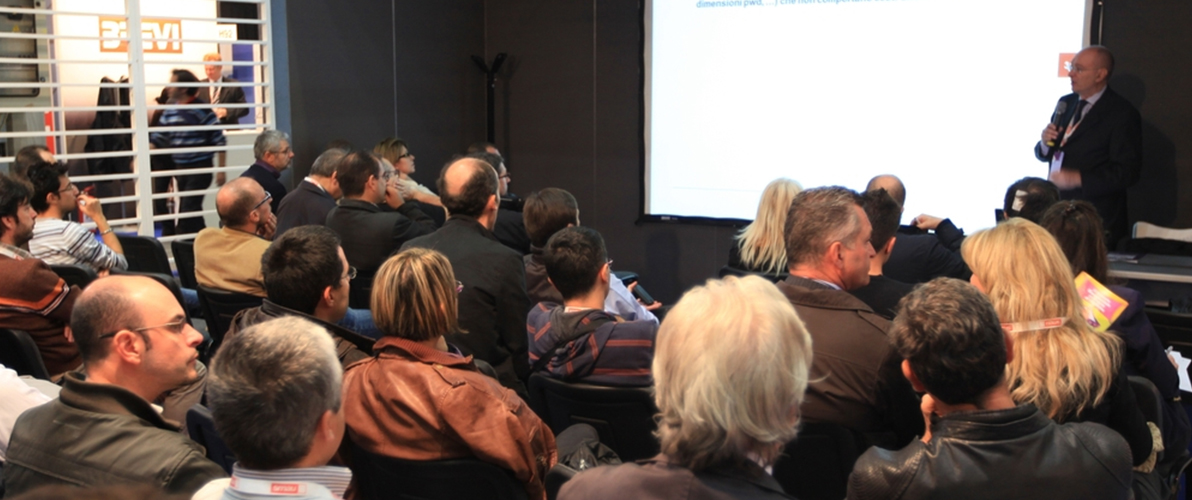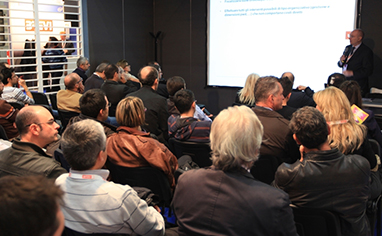
The German Academic Exchange Service or DAAD (Deutscher Akademischer Austauschdienst) is set to face severe budget slashes, resulting in programmes being downsized and about 6,000 grants being cancelled.
The DAAD’s core funding via the Foreign Office is to drop from €204 million (US$205 million) in 2021 to about €195 million this year. And, in 2023, according to the federal cabinet, there will be a further cut, with core funding then at the level of €191 million and a total loss of €13 million in just two years. More cuts could be on the way for individual budget items in the ongoing year.
“The cuts in core funding which the federal cabinet has decided on for the Foreign Office are having a considerable impact on our finances and, therefore, on the worldwide activities of the DAAD. They will substantially lower our ability to fund universities, students and academics for years,” says the organization's president, Joybrato Mukherjee.
The DAAD’s core funding via the Foreign Office is to drop from €204 million (US$205 million) in 2021 to about €195 million this year. And, in 2023, according to the federal cabinet, there will be a further cut, with core funding then at the level of €191 million and a total loss of €13 million in just two years. More cuts could be on the way for individual budget items in the ongoing year.
“The cuts in core funding which the federal cabinet has decided on for the Foreign Office are having a considerable impact on our finances and, therefore, on the worldwide activities of the DAAD. They will substantially lower our ability to fund universities, students and academics for years,” says the organization's president, Joybrato Mukherjee.
A blow to international appeal
“In addition, the cuts will harm Germany’s international attractiveness and competitiveness as a higher education and research location, and also the appeal of its institutions. And this is coming at a time when Germany, especially, would be called upon to set an example and play a leading role in international higher education and research relations.”
The shock announcement comes just days after the DAAD’s issuing of its policy paper Außenwissenschaftspolitik für eine multipolar Welt (‘Science diplomacy for a multipolar world’), which calls for the development of a science diplomacy based on political realism and focusing on global crises, upheavals and system rivalry.
“Since Russia’s attack on Ukraine, the issues and challenges German science diplomacy has to address have once again increased,” Mukherjee said at the launch of the paper. “We are living in a new ‘world disorder’, and this requires a new effort to develop the German Federal Republic’s international academic relations.
“Today, in our multipolar world, more than ever before, there is a need for a strategically positioned ‘science diplomacy’ which also enables mutual understanding, dialogue and negotiating of conflicts at an academic level in times of growing tension and tough international competition.”
The shock announcement comes just days after the DAAD’s issuing of its policy paper Außenwissenschaftspolitik für eine multipolar Welt (‘Science diplomacy for a multipolar world’), which calls for the development of a science diplomacy based on political realism and focusing on global crises, upheavals and system rivalry.
“Since Russia’s attack on Ukraine, the issues and challenges German science diplomacy has to address have once again increased,” Mukherjee said at the launch of the paper. “We are living in a new ‘world disorder’, and this requires a new effort to develop the German Federal Republic’s international academic relations.
“Today, in our multipolar world, more than ever before, there is a need for a strategically positioned ‘science diplomacy’ which also enables mutual understanding, dialogue and negotiating of conflicts at an academic level in times of growing tension and tough international competition.”
Joint responsibility for democracy
In the new world disorder, Mukherjee maintains, all German institutions relating to science diplomacy had to campaign and assume responsibility for democratic values and advance the instruments they had at their disposal for science diplomacy.
The DAAD’s policy paper should also, therefore, be understood as an invitation for federal and state politicians, universities and science organizations to join forces in developing a science policy based on political realism.
The DAAD has already started to scale down some of its core activities although, with further cuts possibly on the way, additional areas could become affected. Right now, the award of long-term grants for undergraduates and doctoral students has to be reduced by 50%, resulting in a loss of about 700 long-term grants each year.
Funding of lecture and congress trips as well as summer and winter university special programmer has also been put on a hold, affecting around 5,000 individuals each year.
Lectureships at universities abroad cannot be re-staffed and, in the medium term, about 100 of the nearly 450 locations at which academics are representing the German higher education system will be given up.
The DAAD’s policy paper should also, therefore, be understood as an invitation for federal and state politicians, universities and science organizations to join forces in developing a science policy based on political realism.
The DAAD has already started to scale down some of its core activities although, with further cuts possibly on the way, additional areas could become affected. Right now, the award of long-term grants for undergraduates and doctoral students has to be reduced by 50%, resulting in a loss of about 700 long-term grants each year.
Funding of lecture and congress trips as well as summer and winter university special programmer has also been put on a hold, affecting around 5,000 individuals each year.
Lectureships at universities abroad cannot be re-staffed and, in the medium term, about 100 of the nearly 450 locations at which academics are representing the German higher education system will be given up.
Cuts to global research centers
There are also going to be considerable cuts in the funding of the six German Centres for Research and Innovation in the United States, Brazil, India, Japan and Russia. Universities are to have their funding for supporting international students in tuition and other areas halved.
“We deplore and are deeply concerned about the cuts facing us,” Mukherjee says. “They counteract the conceptually appropriate statements and funding approaches of the coalition agreement which the federal government’s policies are supposed to be based on.
“We hope the cuts will be withdrawn in the course of the further preparation of the budget. And we hope, and indeed expect, that this will also be the case for our partner organizations, the Alexander von Humboldt Foundation and the Goethe-Institute, both of which face cuts, too.”
Source: University World News
“We deplore and are deeply concerned about the cuts facing us,” Mukherjee says. “They counteract the conceptually appropriate statements and funding approaches of the coalition agreement which the federal government’s policies are supposed to be based on.
“We hope the cuts will be withdrawn in the course of the further preparation of the budget. And we hope, and indeed expect, that this will also be the case for our partner organizations, the Alexander von Humboldt Foundation and the Goethe-Institute, both of which face cuts, too.”
Source: University World News


